From December 10-11, 2020, the first-ever hybrid Methodist youth conference, One Heart, Soul, Mind and Strength (1HSMS), brings together young people and church leaders to discuss issues faced by this generation and what the future of churches could look like.
On Day 1, the first session was a heart-to-heart online chat with a panel of pastors, moderated by youth leader Deborah David.
- Bishop, Methodist Church in Singapore (MCS) Rev Dr Gordon Wong
- Trinity Annual Conference (TRAC) President Rev Stanley Chua
- Chinese Annual Conference (CAC) President Rev Dr Gregory Goh
- Emmanuel Tamil Annual Conference (ETAC) President Rev Philip S Abraham
We feature a few of these questions and answers, which have been edited for brevity and clarity.
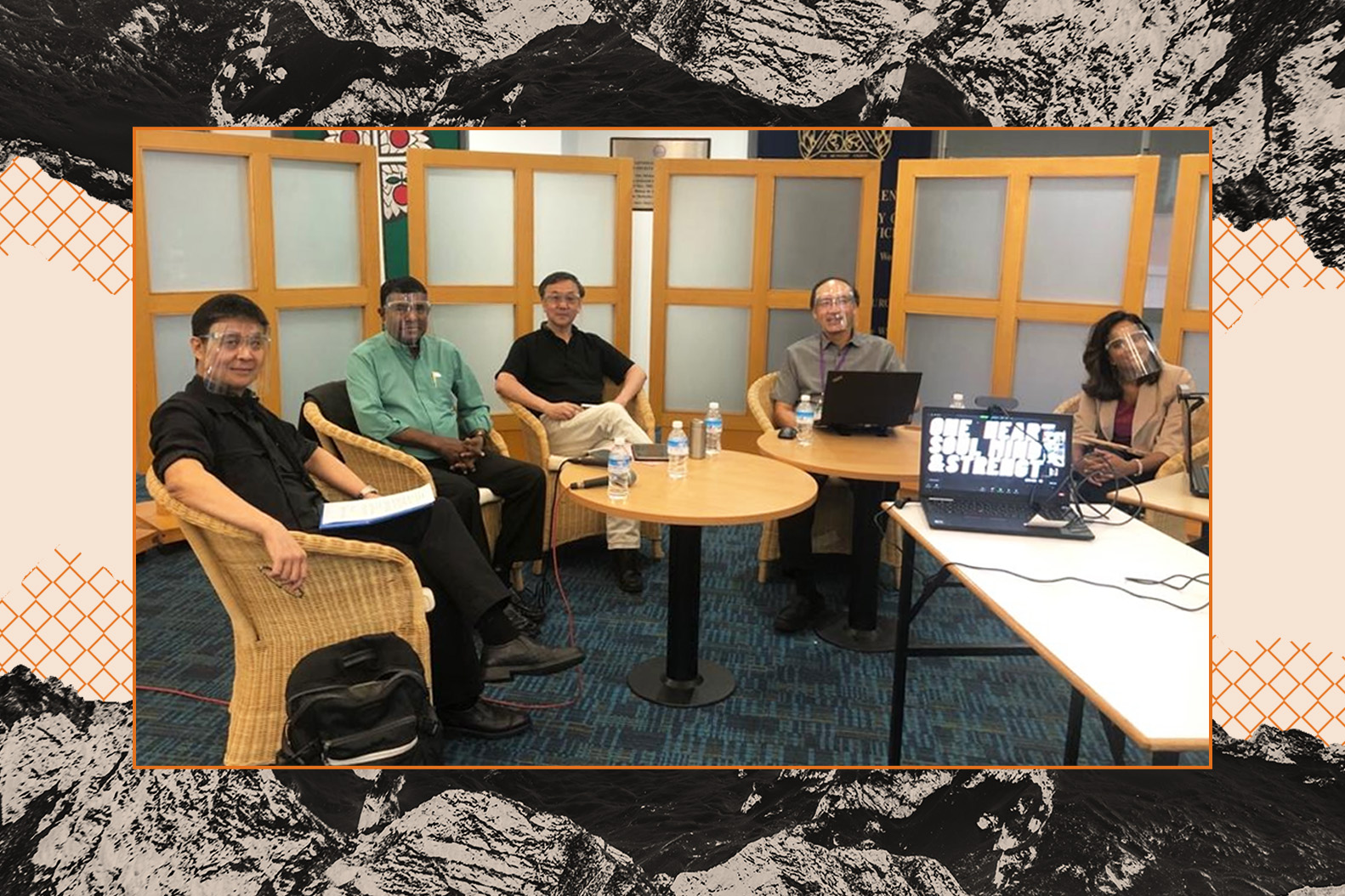
What are the blessings that COVID-19 has brought to our churches?
Bishop Rev Dr Gordon: COVID-19 is not a blessing, but there have been several good things, or blessings, that have come out of this terrible situation. In the same way, Paul made a distinction in 1 Thessalonians 5:18. He doesn’t say give thanks “for” every thing.
COVID-19 is not something we’re thankful for. But “in” the midst of COVID-19, is there anything we are thankful for? Is there any blessing that came out of it? I think there are.
Rev Philip: Families are often so busy, but during this period of time, we saw that families were able to gather. We also encouraged them to have family worship together. I believe it built warmth in relationships.
Rev Dr Gregory: There was more focus on families, as well as discipleship and how we live out our faith. We can sometimes get too caught up with church activities. It was good to pause, to reflect on what we’re doing now.
The other good thing is the digitalisation of churches. We’ve not been riding on the benefits that come with digitalising, so this season has helped the churches to transform. Hopefully even after COVID-19, new digital tools can be integrated into our church ministry to reach out to more people.
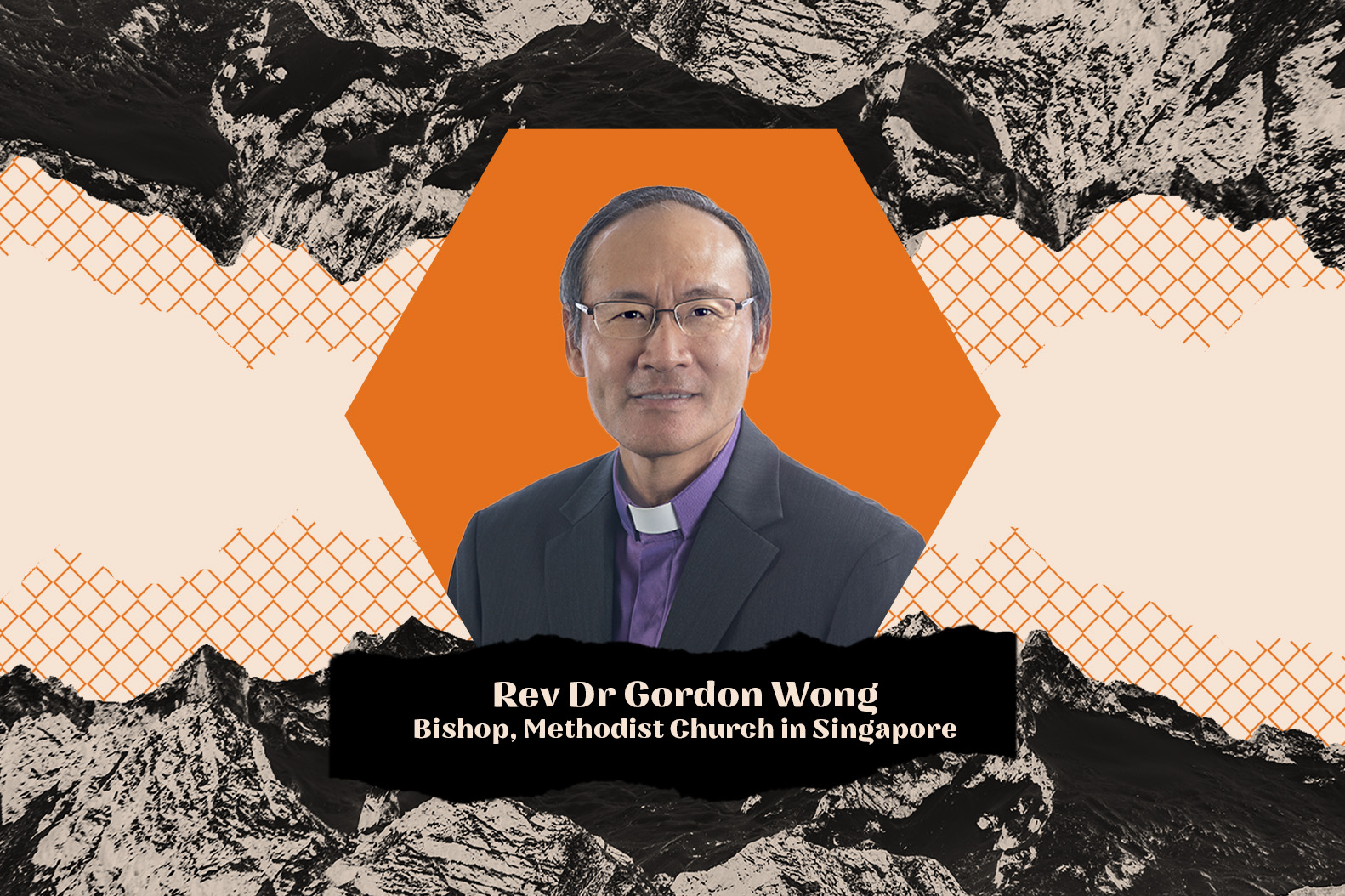
How are our churches addressing the continued degradation of God’s world? And how can youths be more involved in social issues and politics?
Rev Stanley: Over the last two years, the theme at the church I was pastoring (Wesley Methodist Church) was Impacting the World – and looking into creation care was a part of that.
We’ve deliberately set up a committee that oversees creation care. We ask the pastors and staff to lead by example, such as practising more efficient use of water and electricity. We’ve also done away with plastic bottles.
If your church is not doing anything about creation care, you can speak to your pastors and remind them of the social principles we wish to uphold. But you don’t need to wait for your church to initiate something. You can also start by contributing on your own or in your cell groups. Who knows, it might snowball into a movement in your church!
As for community involvement, I would like to encourage you to first be involved in your own church because you can reach out to the community through your church’s outreach programmes.
But if you come from a small church that doesn’t have an established ministry, there are organisations under the Methodist Welfare Services that reach out to the wider community in Singapore.
As for politics, scripture advocates neither total withdrawal nor does it say that we should over-invest. If you look at the Bible, I believe there’s enough counsel. Examples such as Esther, Joseph and Daniel show that there’s a part for us to play.
As individual citizens, we can play our part by taking an active interest in the political landscape in Singapore. And the most important thing you can contribute is your vote because it is your way of stewarding what God has entrusted to you.
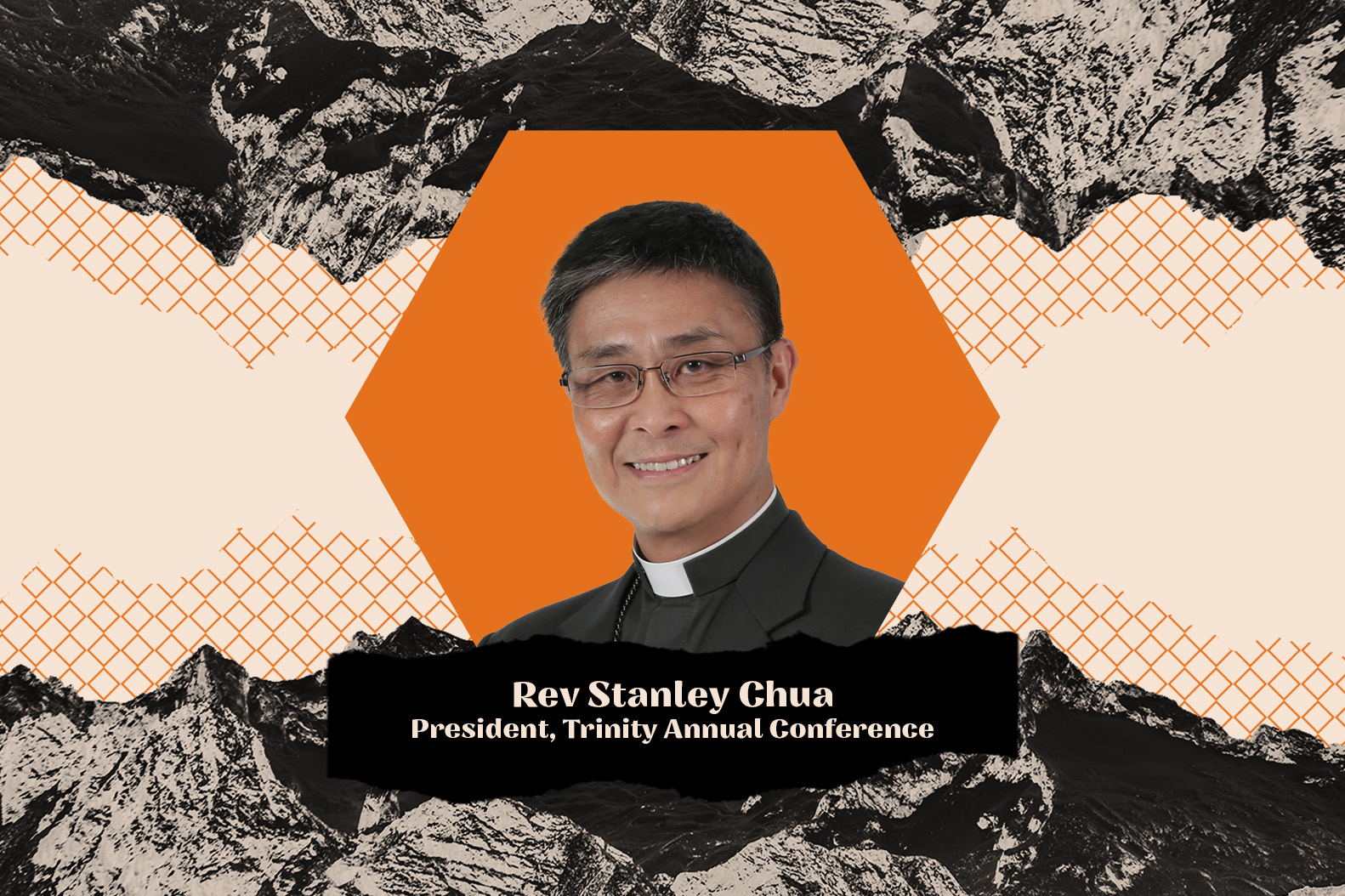
With the rise of contemporary worship songs, will we still see hymns being sung by future generations?
Bishop Rev Dr Gordon: In some ways, hymns were contemporary songs back then. The standard ways of singing used to be just chants, so hymn singing was regarded as pop songs in those days.
The form of music could change depending on culture, place… But I believe that music will continue to be important and relevant, both in terms of helping us with emotions and thinking.
I’ve seen a lot of old hymns being put into new tunes by young people. They have the same lyrics and words, but use a more contemporary beat, which I think is a good thing.
In fact, a lot of the tunes we sing today are not the same ones Charles Wesley sang. They only came in the 19th or 20th century. I think the idea of changing the tune is something that will continue, as different people will like different tunes depending on tastes.
Rev Stanley: Older hymns contain a lot of theology. However, contemporary songs focus more on the individual’s relationship with God. Not that it’s wrong, but perhaps we need to be more balanced.
One possible way forward here is this: To challenge youths to look at these old hymns that contain a lot of theology and put new tunes to it, like what Bishop was saying.
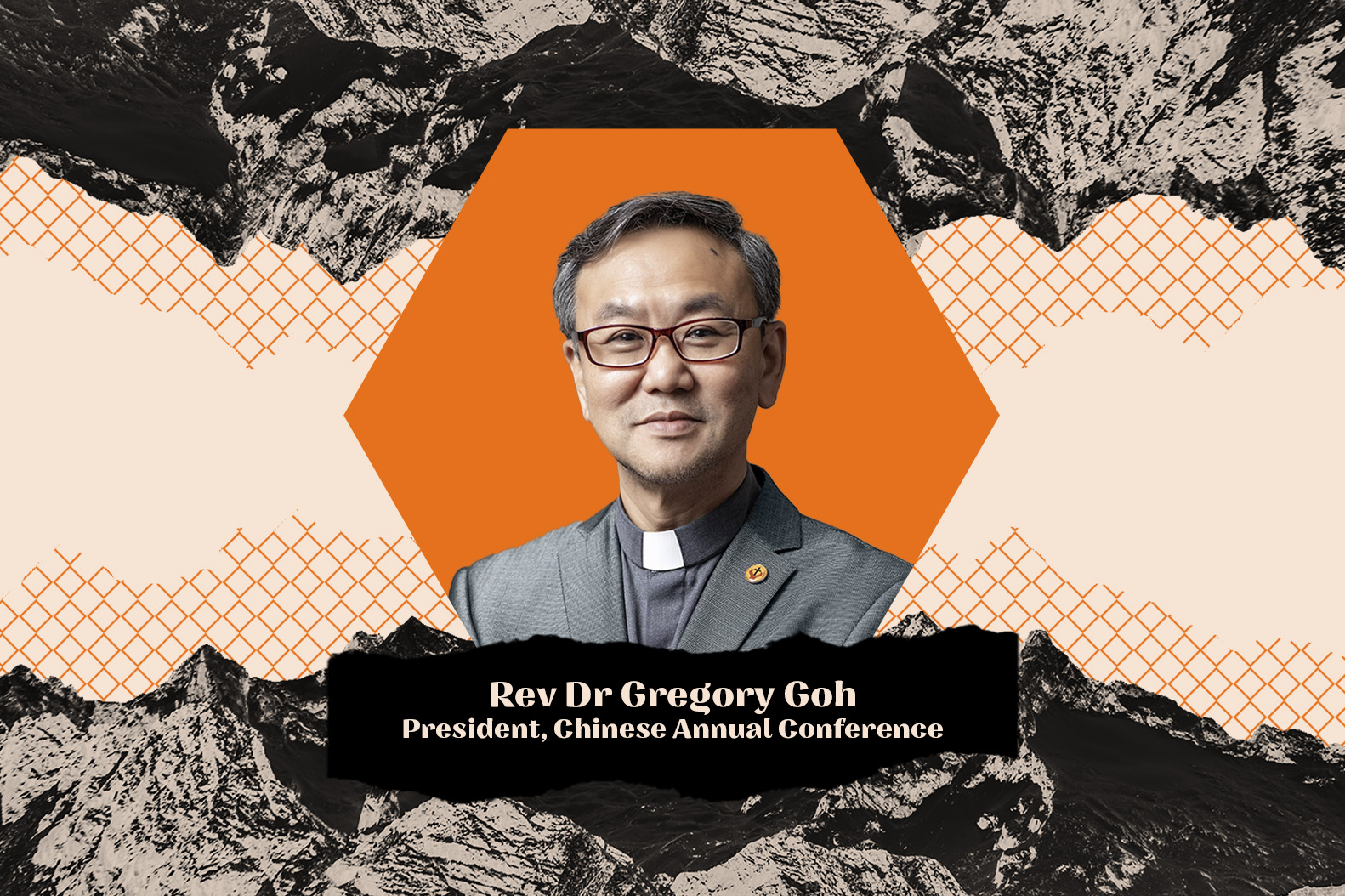
Rev Dr Gregory: To me, songs are like “sung sermons”. It’s a repeated sermon that can reach out to many people in many places. Can you imagine crystallising a sermon into song lyrics and putting in a good tune that people can easily remember and sing? That is the Word of God continually reaching out to people, even non-Christians!
In every generation, we ought to have our own songs that will become the hymns for the next generation. I want to encourage young people to be serious about it. If you really like music, research on theology, get some guidance, go for proper songwriting courses and come up with a good song that expresses your faith.
What do you think is the role of the Church amid the growing secularity of youths?
Rev Stanley: One of the challenges I’ve seen as a pastor is children growing up in Christian homes but later departing from the faith and following more secular values. Perhaps one of the reasons is that they don’t see Christianity lived out in their homes. That is why the role of parents is very important. Church is not just a once-a-week event.
Young people, it starts with you. If you want to see the next generation of youth – your children – coming to embrace the faith, you have to start living out the faith in your home.
There’s no guarantee that if you do all this, your children will come to know God. But when you do this, it gives your children a fighting chance to see that your faith is real. And when others see your faith is being lived out, they will know that there’s a personal God.
What do you think needs to change in order for our churches to grow?
Rev Dr Gregory: We may need to re-think some of our institutional structures that have been serving us for many years. I see beauty in diversification – our churches are of different sizes and cultures, and with different roles to play. How can we work together to be more efficient and reduce some duplication, and tap each other’s strengths so that we can grow faster?
Bishop Rev Dr Gordon: Growth inevitably implies change, and when we talk about growth, we need to define it. Paul talked about growth in 1 Corinthians 3:6. He said: “I planted, Apollos watered, but God gave the growth.”
Growth also shouldn’t be defined as just numbers. If we’re going to continue being a faithful witness, we should focus on the priority that God has given us, which is to love our neighbour.
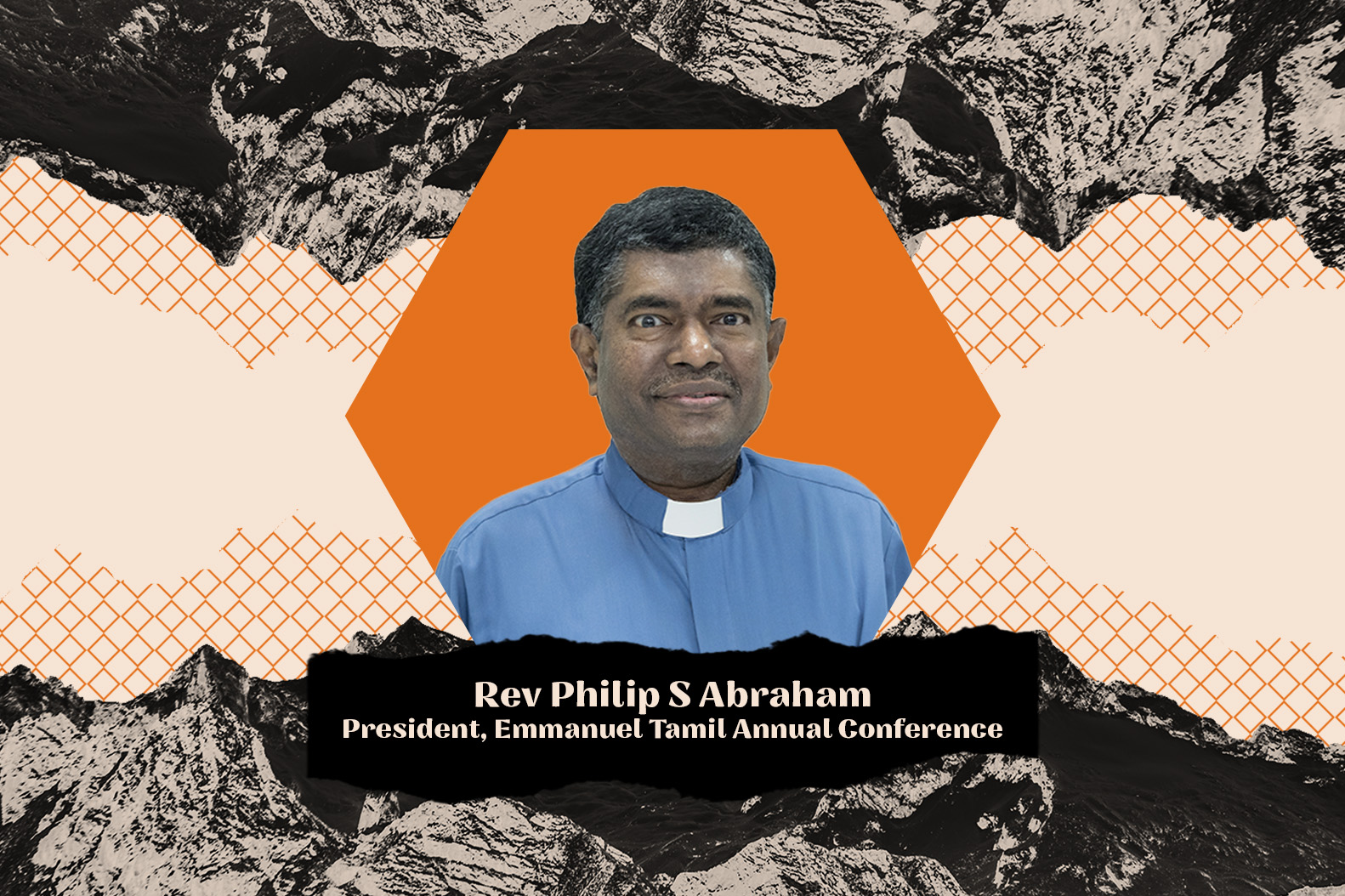
What are your hopes and aspirations for today’s youths?
Rev Dr Gregory: I hope to see our youths discern the call of God in their life. God has a different calling for every individual, so the important thing is to find out what God’s calling is for you. You may not be called to be a pastor, but you may be called to be a social worker or a teacher.
Be faithful in your calling. Ask God what He wants you to do in that career or position you have, so that you can be the light and salt for Christ.
Rev Philip: We want to see our youths grow in the Word of God and take up leadership roles in the local churches. We want our young people to come onboard to serve God faithfully, and to realise that God is good at all times.
Rev Stanley: I realise that this generation doesn’t really know our Methodist heritage. But if we forget about how we came to be where we are today, we can take things for granted and lose our bearings. By understanding our heritage, perhaps we will then come to a greater appreciation of our roots.
Bishop Rev Dr Gordon: Youths or not, the calling is the same: It is to love God by loving our neighbours. So look for different ways to do that together and encourage each other. Let’s go out and love God by loving our neighbours.
There will be a worship night tomorrow, December 11 (Friday), at Kum Yan Methodist Church. Here’s how you can sign up. Can’t join in person? You can still catch up via the livestream!
All photos courtesy of the Methodist Church in Singapore.









